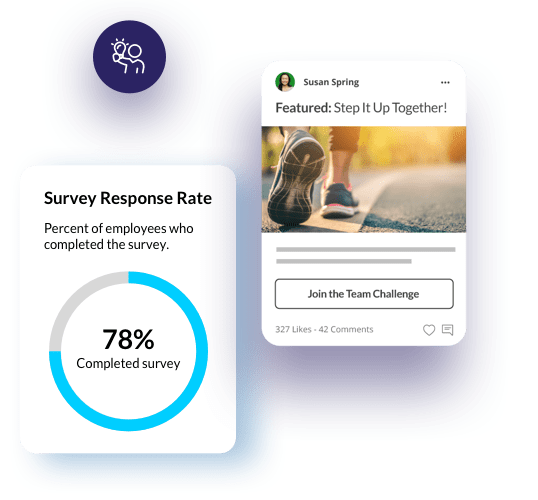Blog Post
Remote Internships: How to Engage Your New Graduates

Explore more in Employee Engagement

Blog Post | Employee Well-Being
6 Steps to develop an effective wellness incentives and rewards plan
To create a successful wellness incentive program, it’s crucial to understand that it takes a thoughtful approach of both intrinsic and extrinsic rewards for employees.

Blog Post | Employee Engagement
How You Can Get Up To A 90% Employee Survey Response Rate
If your employees aren't engaging or responding to your engagement surveys, here are 6 tips for increasing your participation rates to up to 90%.

Blog Post | Employee Engagement
10 employee survey questions with the highest response rates
Discover what makes employee engagement surveys a necessity as well as how you can increase participation with the 'right' questions.

Blog Post | Employee Engagement
15 questions you should ask in every 1-on-1 meeting
What makes an exceptional 1-on-1 meeting? The questions and answers that are gathered. Learn to make the most of your 1-on-1 meetings.
Explore more blog posts from this author

Blog Post | Employee Well-Being
How to Create a CSR Program Employees Love
Learn how to pick social causes for your CSR program that engage employees and customers, and get started with these 6 CSR activities.

Blog Post | Employee Engagement
Remote Internships: How to Engage Your New Graduates
Learn why it’s important to engage your new graduates, and get 5 ways to run remote internships to benefit your business.

Blog Post | Employee Well-Being
How to Prevent Loneliness at Work
Learn why your organization should care about loneliness at work, and get three ways to help employees stay connected and engaged.

Blog Post | Company Culture
Best Practices for Returning to Work
Returning to work during COVID-19 can be a test of your organization’s ability to adapt to changing environments. Here are five best practices to guide you.




